Sixty years after the original Freedom Riders rolled into Mississippi capital city after a treacherous bus journey down from Washington, D.C., a new generation of activists chose to start a new ride for equal rights and freedom in Jackson, Miss. This journey to the nation’s capital kicked off at Tougaloo College on June 19, 2021, which was the first time in American history that Juneteenth had been celebrated as a federal holiday.
Organized by Black Voters Matter, the week-long event is intended to draw attention to the need for voting-rights expansion.
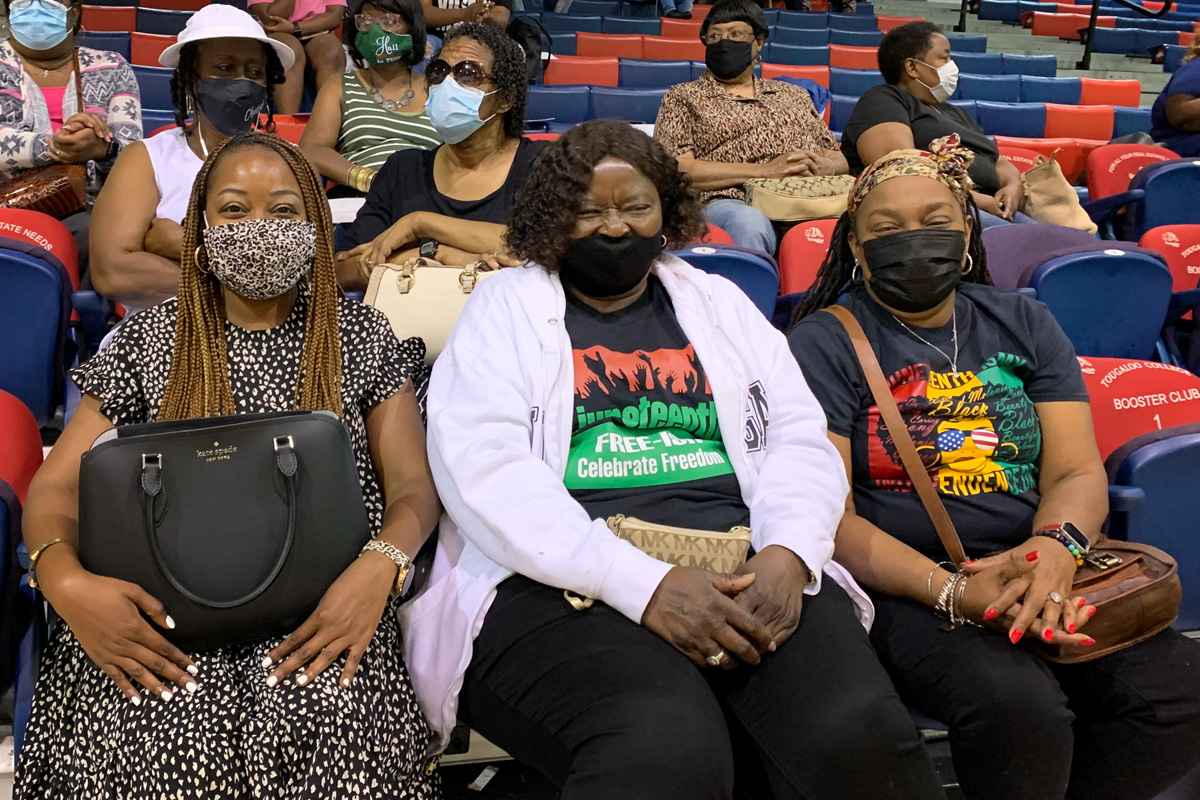
Wendell Paris, a former Tuskegee Institute student and a long-time civil rights activist, said it was only fitting that the first stop be in the city where so many of his comrades-in-arms were arrested. “Jackson is a mecca of Black political power,” Paris stated in his remarks at the Owens Health and Wellness center on the HBCU campus.
“But if we forget that we are the land of the free and the home of the brave, we will be the land of the tree and the home of the grave.”
Fighting for Voting Rights In Medgar Evers’ Spirit
Barbara Arnwine, the president emeritus of the Lawyer’s Committee for Civil Rights with the Transformative Justice Coalition, applauded Paris’ dire pronouncement, emphasizing the fragility of Black enfranchisement in America and in the South in particular. “We want to be sure the nation knows that Jackson is standing up for this (movement),” Arnwine remarked.
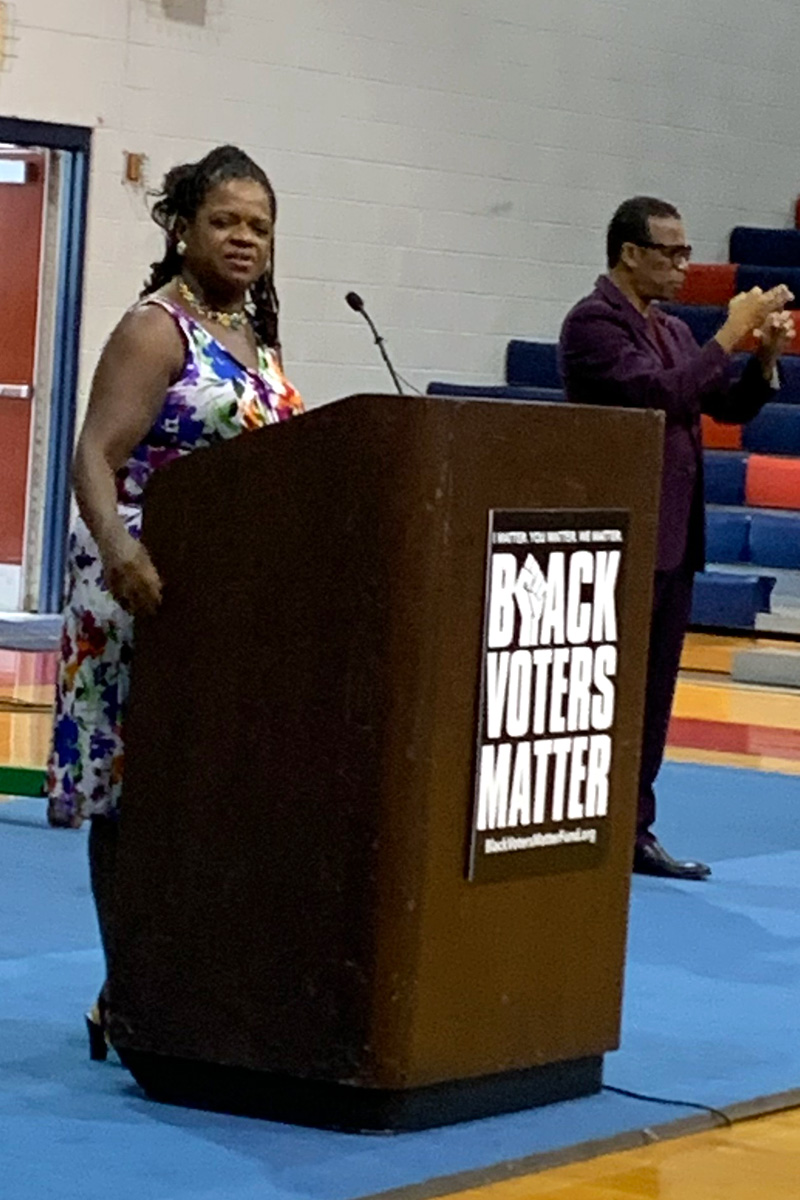
Arnwine also highlighted the three main focuses of the day’s event, which organizers believe encapsulate the goals of this second Freedom Ride: the passage of the For the People Bill, the adoption of the John Lewis Voting Rights Act and incorporation of Washington, D.C., as the 51st state.
House Resolution 1—also known as the For the People Bill— would expand voter registration, automatically registering each U.S. citizen to vote on their 18th birthday and restoring the voting rights of the formerly incarcerated upon the completion or commutation of their prison sentences. If passed, the bill would also provide provisions for early voting, which some states (including Mississippi) do not presently allow.
House Resolution 4—more commonly known as the John Lewis Voting Rights Act—is less prescriptive than H.R. 1 and is instead intended to provide sweeping legislative changes, many of which would reverse the Supreme Court’s decision that struck down the necessity of federal election oversight, particularly in Southern states.
Arnwine went on to decry the recent compromise proposed by Democratic U.S. Sen. Joe Manchin, who felt that he could support an amended version of the John Lewis Voting Rights Act but would not support the For the People Bill. Manchin’s decision effectively ends the possibility of the bill’s passage, as the partisan makeup of the Senate is presently tied at 50-50.
“Yesterday, I visited the home of Medgar Evers, and I spoke to his spirit,” Arnwine said of her commitment to the passage of the pair of bills. “I told him, ‘We’ve got this, and we know what we must do: we must fight.”
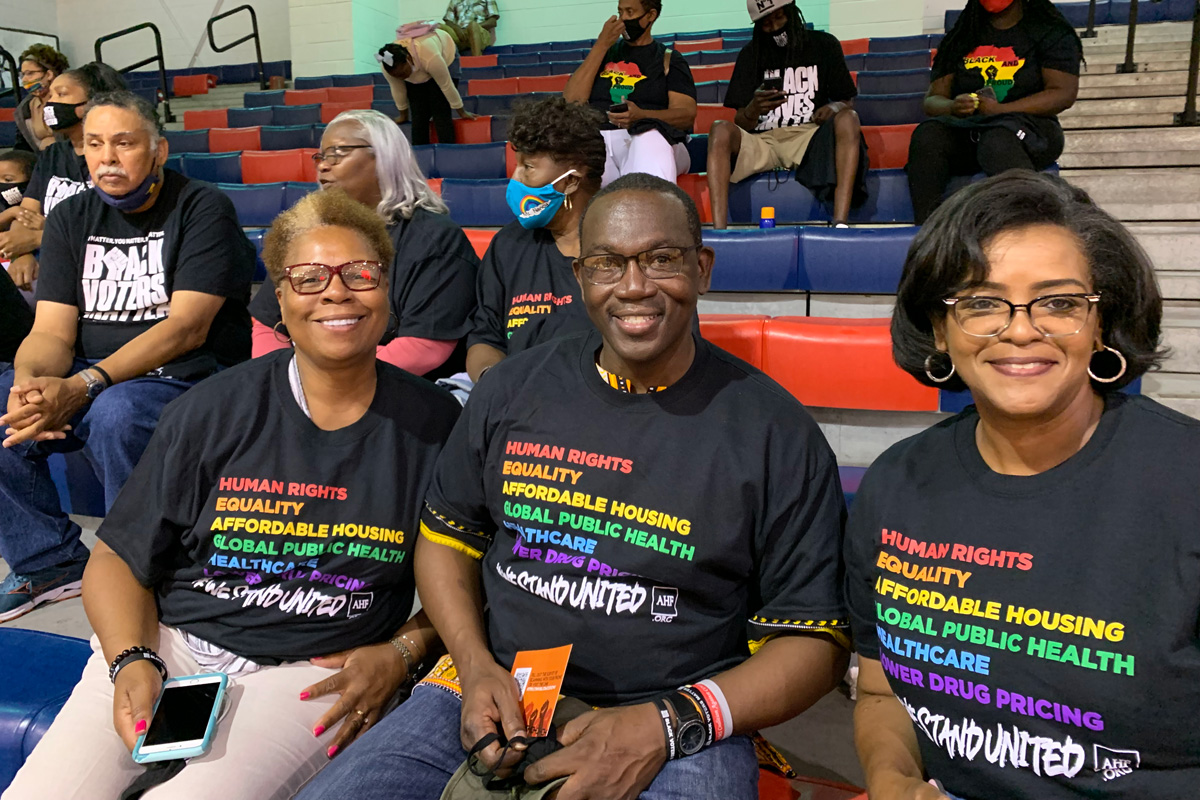
Attacked by White Mobs, Then Arrested
On May 4, 1961, the group of activists bound for Jackson, Miss., handed their bus passes to the ticket-taker at the Greyhound station in Washington, D.C. A few blocks away at a Trailways depot, a second group found their seats on a bus heading for Mississippi’s state capital. About half of the departing passengers—who would later be heralded in civil rights history as “the Freedom Riders”—were Black, and more than three-fourths were under age 30.
Six years before, the Interstate Commerce Commission had handed down a ruling forbidding segregation on public transportation, but with Jim Crow laws still enshrined in numerous state constitutions, Black people across the South were still expected to sit in the backs of the buses and in separate waiting rooms at the stations. These Freedom Riders aimed to challenge these laws in real time, staging rides on public buses throughout the South, where they would defy such mandates openly for TV cameras and in step with their fellow activists.
The entire journey was dangerous. The late Rep. John Lewis suffered a head injury at a South Carolina stop, and a 50-person mob attacked the buses outside of Anniston, Ala. Still, Mississippi was selected as the final destination, its tragic history and record of violent resistance and lynchings looming before the riders as they passed through the South: the grisly murder of Emmett Till and a local jury’s failure to convict his murderers; Medgar Evers’ failed lawsuit to attempt to gain entrance the University of Mississippi’s law school; and Ross Barnett’s recent rise to the governor’s mansion were fresh memories.
Their fears were well-founded. Upon disembarking at a bus terminal in downtown Jackson and making their way to a whites-only waiting room, 27 Freedom Riders were arrested and sentenced to two-month terms at the Mississippi Penitentiary at Parchman in the Delta.
Refusing to make bail, the activists—including Lewis and later Black Panther leader Stokely Carmichael—attempted to overcrowd the plantation-inspired prison, which had long flourished by exploiting post-Reconstruction Black Codes and taking advantage of the ability to force prisoners to perform manual labor. Over that same summer, 300 more activists would be arrested in Jackson, and many would do time at the state penitentiary in unincorporated Sunflower County, the home of Fannie Lou Hamer and the birthplace of the racist Citizens Council in the 1950s.
Young People, the Hope of the Movement
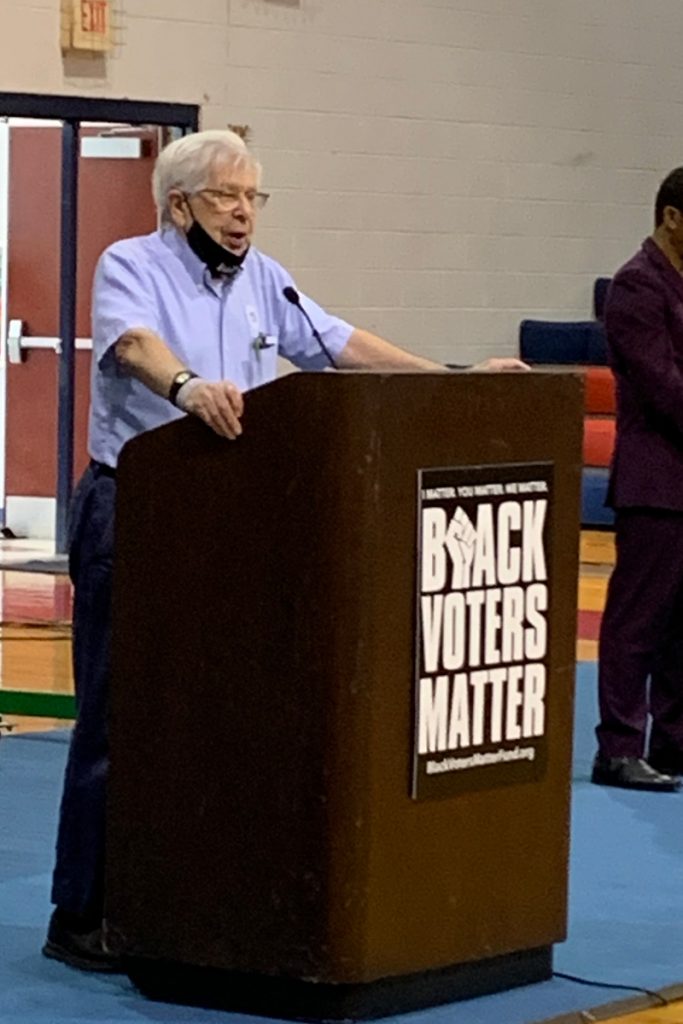
Rims Barber, a white Civil Rights Movement veterans and retired Presbyterian minister, moved to Mississippi to work with the Delta Ministry, and is still here. At the Juneteenth Freedom Ride kickoff, he agreed that the fight for expanded civil liberties—especially in Mississippi—is a worthy one. “It was the local folks who demanded the right to vote, and we struggle with the same thing today,” Barber said. “I have one thing to say to our young people: go get ’em.”
His rallying cry for young people was met with cheers and applause, and several other organizers who spoke throughout the course of the midday event emphasized the importance of youth involvement and activism.
Before the “Blackest Bus in America” set out for its second stop of the day in Birmingham, Ala., LaTosha Brown, the co-founder of the second Freedom Ride, gave an impassioned plea to the young people in the audience, reminding them of the importance of organizing for legislative action. “We’re not exempt from the issues we organize around,” she said. “And that’s why we’re starting where (the Freedom Rides) ended: you can’t learn this history and not ask yourself, ‘What am I gonna do today?’”
The emphasis on the passing of the torch was not lost on audience member and volunteer Arekia Bennett, the executive director of Mississippi Votes. “Young people have always led political movements across the nation,” Bennett said. “Young people’s energy has been the center of the Civil Rights Movement.”
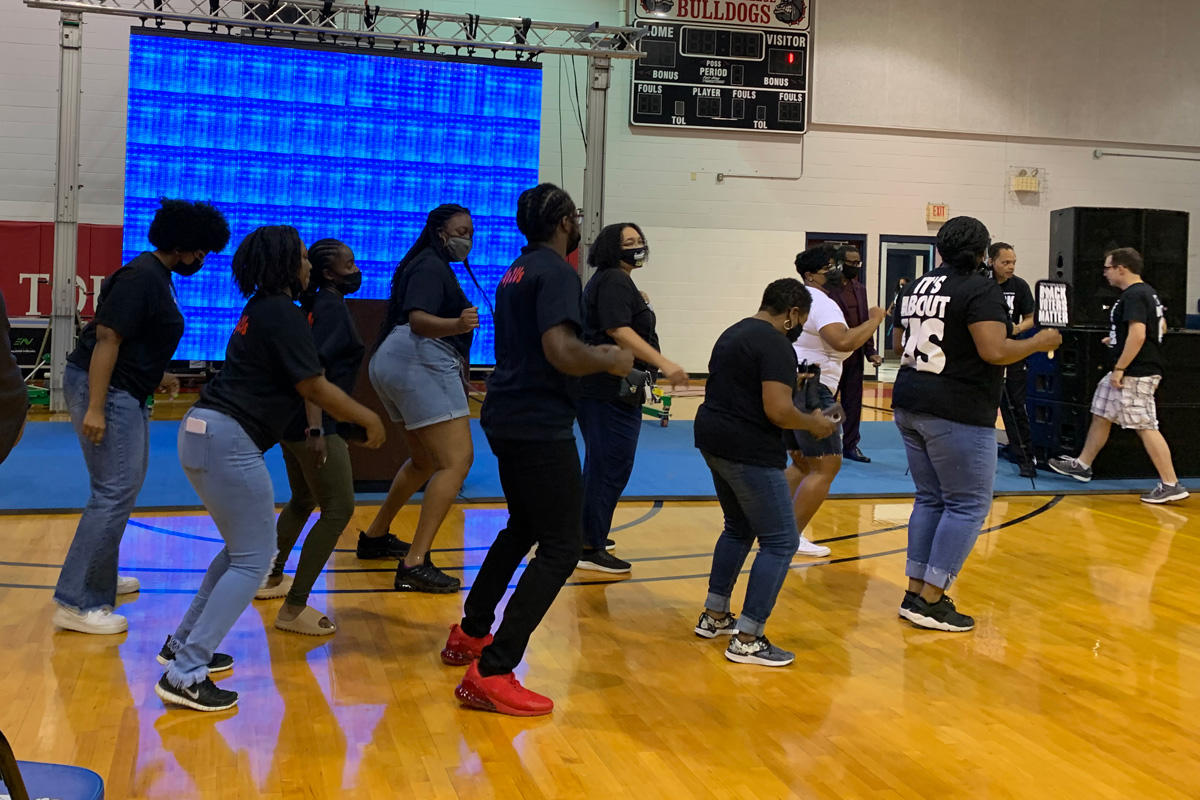
Bennett said this truth has been especially evident in her own state. “Young people in Mississippi have a really unique advantage because our civil rights heroes and veterans live and walk among us,” she said at Tougaloo. “There’s so much wisdom in the older people, and there’s so much energy in the young people, so they are symbolically passing the baton, but they have also already done that since we’ve sat at their feet and listened to and learned from them.”
Those interested in participating in the “Freedom Ride for Voting Rights” can visit this website to learn more about the mission of Black Voters Matter and to locate future stops along the bus route, which will conclude in Washington, D.C., on Saturday, June 26.
"freedom" - Google News
June 22, 2021 at 07:34AM
https://ift.tt/3xzjiQW
'Blackest Bus in America': New Generation of Freedom Riders Start Journey in Jackson, Miss. - Mississippi Free Press
"freedom" - Google News
https://ift.tt/2VUAlgg
https://ift.tt/2VYSiKW
Bagikan Berita Ini














0 Response to "'Blackest Bus in America': New Generation of Freedom Riders Start Journey in Jackson, Miss. - Mississippi Free Press"
Post a Comment